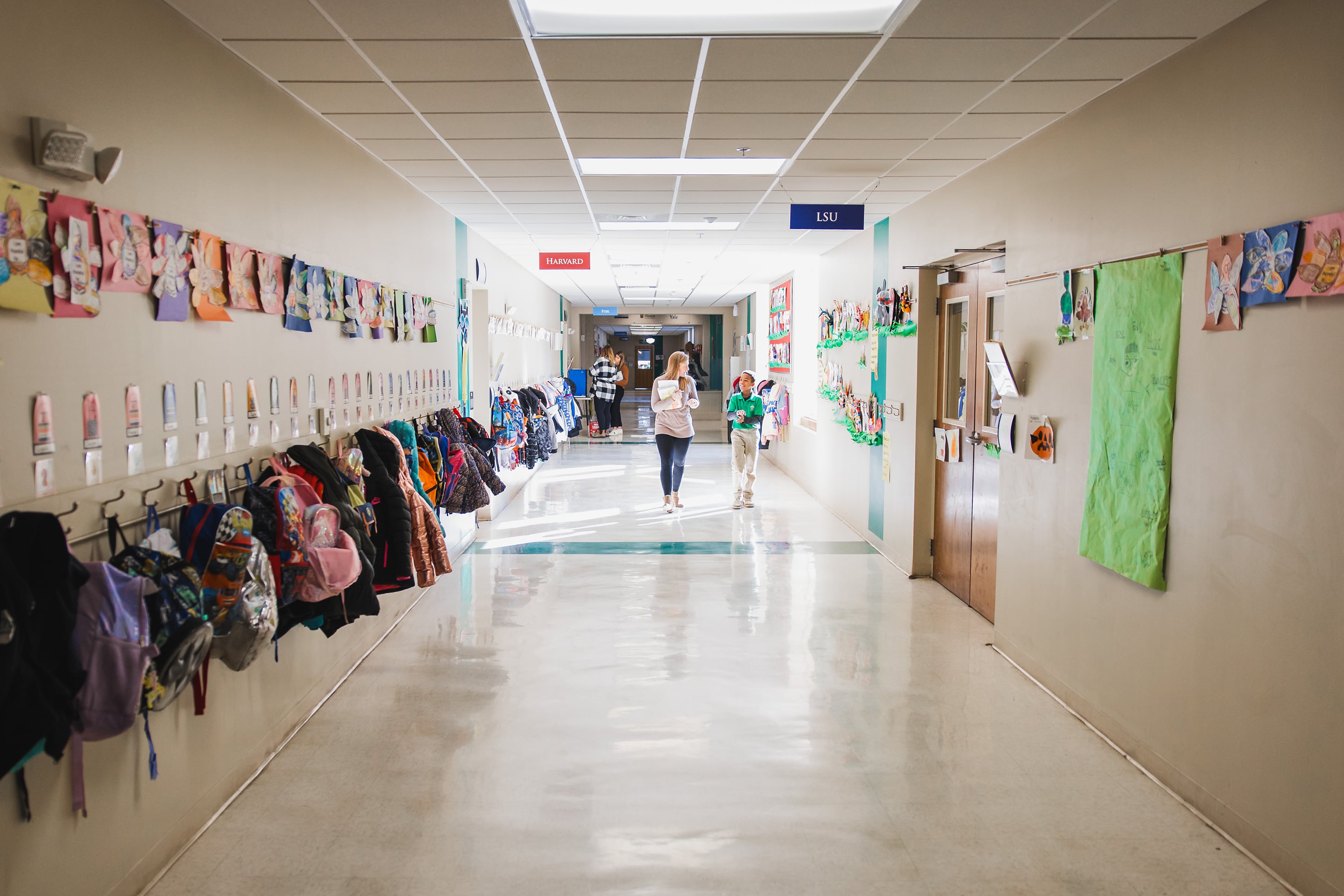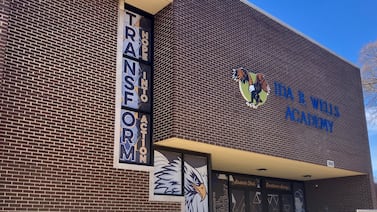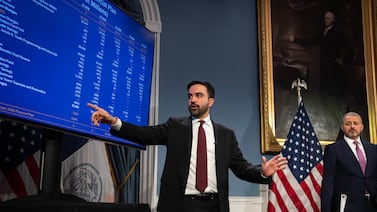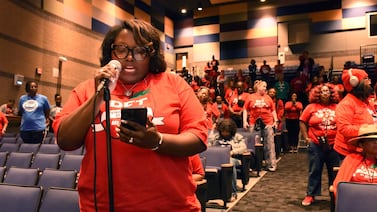Sign up for Chalkbeat Tennessee’s free newsletter to keep up with statewide education policy and Memphis-Shelby County Schools.
Two veteran Democratic education advocates announced a new public school think tank and action fund this week aimed at making inroads in four Southern states. But the outfit may face an uphill battle in states like Alabama and Tennessee, where Republican supermajorities have backed privatization efforts in recent years.
The Center for Strong Public Schools Action fund will back center-left candidates in Georgia, Texas, Alabama, and Tennessee, in addition to investing at the legislative policy level with its think tank arm. Former Georgia state lawmaker Alisha Thomas Searcy and Texas education advocate Garry Jones co-founded the group.
Searcy said last week they narrowed their focus to four states where “both the threats to undermine public education and the opportunities to strengthen it are greatest.”
The initiative comes as Democrats have struggled to define their education policy agenda after the erosion of what had been a bipartisan consensus around public school choice and rigorous school accountability policies. Republicans have leveraged parental frustration with COVID-related school closures and conservative backlash to more inclusive curriculum to advance private school choice policies. At the same time, Democratic politicians have backed away from education reform and charter schools.
While CSPS Action said it will make strategic investments in high-profile contests like the upcoming Georgia gubernatorial and state schools superintendent races, the group would likely face an uphill battle on similar goals in Tennessee. The GOP continues to dominate politics in Tennessee, where Republicans hold an entrenched supermajority in the state legislature and Democrats have failed to make substantive gains in recent cycles.
A CSPS spokesperson said the group plans to focus more on state policy goals in Tennessee around accountability, funding equity for public charters, and literacy and math initiatives, though it could dip into more local issues like upcoming Memphis-Shelby County school board races.
Jones and Searcy said they have raised more $1 million from national and local donors, but they declined to answer questions about who is backing the effort.
Searcy noted CSPS aims to keep a spotlight on accountability, an issue that drew heated debate in the Tennessee statehouse earlier this year as Republicans pushed through Gov. Bill Lee’s voucher program. Though participating students must take a standardized achievement test, the program allows private schools to opt out of Tennessee’s standardized testing.
With a continued GOP focus on “privatization,” Searcy said there’s an opportunity for Democrats to “embrace public charter schools,” though she acknowledged there is no consensus within the party regarding public school choice.
“It seems that Republicans are sort of abandoning anything within the public school system,” Searcy said. “When you look at who’s being served in charter schools, many of those students are Black and brown students, many of them are low-income students. These are students that we need to make sure still have a voice, still have access to equitable resources, whether it’s funding or building, because they are all in public schools.”
In addition to public school choice and accountability, Jones said the group would focus on more equitable school funding, supporting teachers, and improving school safety. These priorities bridge areas of traditional Democratic strength with ones where Republicans have gained ground.
Searcy and Jones are both alums of Democrats for Education Reform, a group that once played an influential role in electing school board members and state legislators sympathetic to the reform agenda. Searcy was hired by DFER to expand its reach in some of the same states that now will be the focus of CSPS.
DFER has seen an exodus of longtime staffers amid leadership and strategy changes, and numerous state chapters have closed.
Democrats for Education Reform commissioned a poll in 2023 that found that Democrats had lost the trust of voters when it came to education. CEO Jorge Elorza at the time exhorted Democrats to embrace public school choice policies to win back these voters. In the wake of the 2024 election, Elorza went further, issuing a paper that called on Democrats to be more open to vouchers and educational savings accounts and to invest their political capital in steering these programs toward helping the neediest students.
Searcy and Jones said vouchers represent a bright line that they won’t cross.
“I want to be clear about what sets us apart,” Searcy said. “It’s our commitment to public education. It is foundational for us, and it’s nonnegotiable. We’re committed to remaining focused on strengthening public schools, not creating pathways that take away from them.”
The story has also been updated to include additional information about CSPS’ policy plans in Tennessee.
Melissa Brown is the bureau chief for Chalkbeat Tennessee. Contact Melissa at mbrown@chalkbeat.org.





